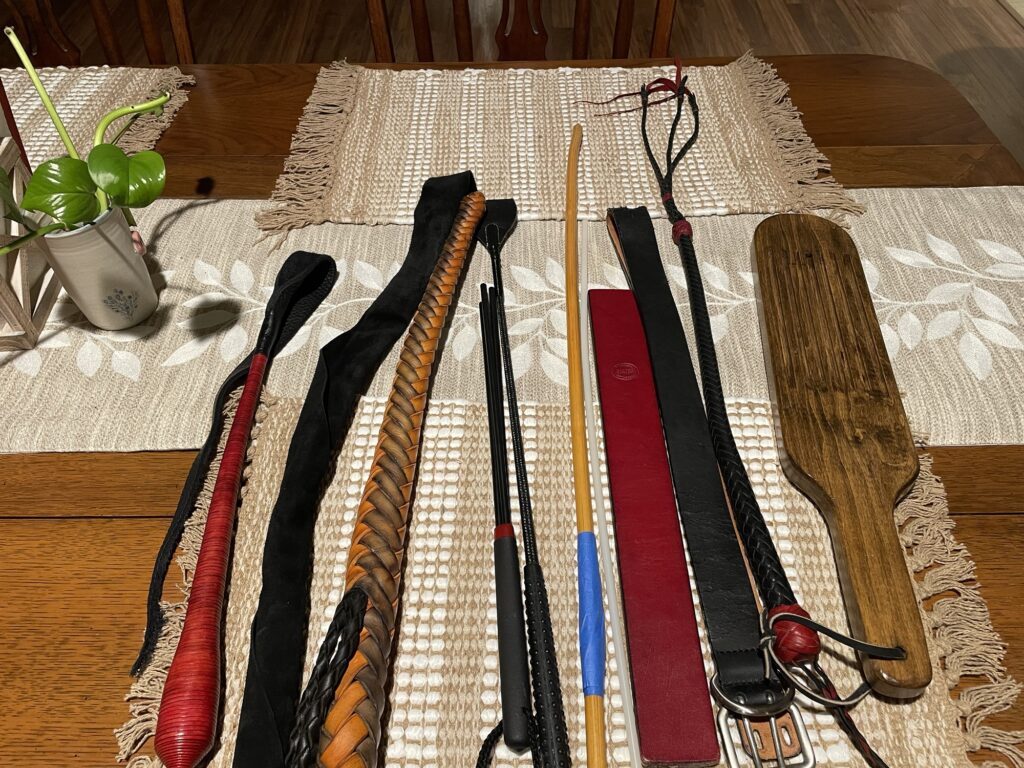Day 22: What do you think is important in keeping a BDSM relationship healthy? How does it differ from a vanilla relationship?
I struggled with this one a bit, because I really am of two minds here. On the one hand, I want to say, “BDSM relationships are special, and different, therefore they need certain things in particular to keep them viable.” But the reality is, all relationships need honesty, communication, compassion, trust, respect, passion, compatible values and goals…these are all things that I feel every relationship needs to stay healthy and viable, regardless of your orientation.
It’s possible that there are certain traits or qualities that a person has to have to be able to have a healthy BDSM relationship though. As W and were discussing only last night, people in BDSM relationships, or planning to experiment with BDSM, also need to have a healthy dose of common sense, be self-confident and have a (generally) positive self-image – or at least a willingness to be honest with themselves about their strengths and weaknesses. I know that there are plenty of people with only some none of these traits who are playing at or living in a BDSM relationship, but I would contend that not having these qualities is a BIG obstacle to finding and maintaining a healthy relationship, specifically because the relationship itself is so (deliberately and consensually) unequal by definition. To not have that inner strength places you at a disadvantage from the outset, and places you in the position of having to overcome obstacles right from the start, in a relationship that already has complexities of dynamics that other relationships may not. So those are things that I could argue are things that are particular to maintaining healthy BDSM relationships.
But truly, if we look at any of the things that I listed, aren’t they all necessary to healthy interpersonal relationships? I do think that without them, eventually a BDSM relationship will fail, and those “trainwrecks” that we so often see, those people that we see having failed, disastrous relationship after failed, disastrous relationship probably are missing one or more of them, and possibly not even realizing that the source – and the power to change it – is within themselves. Conversely, I think that it is far easier to maintain a non-BDSM relationship without one or more of these qualities, because the potential for having a “surface” relationship that doesn’t delve very deeply into the parties involved is greater. NOT a given, by any means, and this is not particular to only vanilla relationships, just that it seems to me that, given any length of time, eventually a BDSM relationship takes its participants pretty deep, and in a vanilla one, it can be easier to maintain a shallower level of communication, to hide one’s true feelings or to survive with less communication. So to go in without those qualities in a BDSM relationship is a sure recipe for disaster, whereas in a vanilla one, you might*be able to maintain it, and possibly even happily so.
